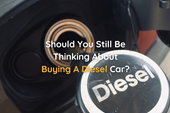
Planning Your Perfect Dealership Visit
Get It Right, First Time, When You Visit Your New Car Dealership With Our Guide…
If you’ve got to the dealership stage of car buying; congratulations! Presumably, you’ve made it through the minefield of online car listings, countless manufacturer websites (with endless offers, facts, figures and jargon) and hundreds of review sites that can all help (or hinder) the car buying process.
The problem is, at this stage, things start to get real. Visiting a dealership is a big commitment, effectively signalling that you’re ready to part with your hard-earned money and finally get that new car.
As we’ve said before, a dealership visit is often viewed as the most daunting step in the whole process, but it doesn’t have to be. With a bit of preparation and awareness, your trip to the car dealers can be an enjoyable, fruitful experience; here’s what we recommend…
Things To Consider Before Visiting A Dealership
Research Dealerships In Your Local Area
In most cases the dealerships you visit will probably be determined by the specific cars you’ve earmarked online. That said, you can still create a shortlist by doing a bit of research first.
Check out TrustPilot, Google My Business (using searches like; ‘car dealerships near me’) and Autotrader for up to date reviews from real customers of your chosen dealerships. Here’s some criteria to look out for:
- Average Score: The average score (usually out of five stars) gives you a quick overview of who’s worth visiting and who’s not. Remember, most will only leave reviews after a poor experience, so be fair in your overall assessment of each dealership.
- Most Recent Reviews: Sort reviews by ‘Most Recent’ to see if there are any issues with the dealership right now.
- Most Common Complaints: Scanning for common complaints (which can be done more easily on sites like TrustPilot that provide common phrases) is a good way to outline any underlying issues, or benefits of your chosen dealership. Perhaps they’re known for excellent aftersales service, or maybe they’ve had issues with test driving, for example.
- How Quickly The Dealership Responds: How quickly they respond is a pretty good indication of how you’ll be treated post purchase. If they’re super slow to reply, don’t expect them to get back to you quickly; should anything go wrong with your new car.
- How The Dealership Responds: Importantly, check out how they respond. Does the dealership seem fair, open minded and willing to help? Or do they blame the customer and refuse to get involved; something which could make or break your ongoing experience.
Nervous? Book Ahead
Nervous about visiting the dealership and talking to a scary salesperson? Call ahead and build some rapport beforehand.
Talking to someone over the phone is a great way to break the ice and alleviate any anxiety you may have before visiting. Often, buyers worry that they’ll be ‘jumped on’ as soon as they step foot on a forecourt, so by calling ahead you have an opportunity to say ‘no thanks, we have an appointment’.
Your car salesperson will probably be more inclined to give you a little more browsing time too, as they already know you’re interested a particular car or deal.
Have A Realistic Expectation Of Your Part Exchange
Don’t be caught off guard when it comes to your trade in; having a realistic expectation of your part exchange could help you get a better deal.
We say; ‘realistic’ because it’s important to keep an open mind; don’t expect to go in and drive a hard bargain on your trade in; you probably wont get market value for your car, instead, you’ll be offered a ‘trade’ price, which gives the dealer some margin.
How Do Dealerships Work Out A Part Exchange Value?
Glass’s Guide
Glass’s Guide is an online data system which dealerships use to gather information about your car, such as vehicle identification, repair costs and, crucially, live market value.
Generally, a Glass’s Guide value will form the basis of your part exchange offer. Sadly, it’s only available on a business subscription, so you can’t take a look beforehand.
Factors Affecting Your Car’s Part Exchange Value
There are many factors dealerships use to determine the trade price they’ll offer for your car;
- Mileage: The higher the mileage, the less your vehicle will be worth. However, other factors are considered when it comes to mileage, such as engine wear (depending on engine type), time frame (such as a high mileage in a short space of time) and the kind of mileage (such as motorway miles, or urban commutes).
- Condition: A pristine vehicle will always be worth more than one that has bumps, scrapes and is in need of general repair. Scratch & Dent Insurance and Tyre & Alloy Cover could help protect your vehicle against every damage, maintaining your resale value, without affecting your no claims bonus.
- Owners: Generally, the less owners a car has, the greater the resale value.
- Service History: A full service history goes a long way in increasing the value of your part exchange. Dealership or manufacturer service history is preferred, but any reputable garage or service centre stamps are better than none.
Have A Car In Mind (Or At Least A Type)
Putting together your car must-haves, such as body type, fuel type (or electric) and space will help focus your dealership visit and help the salesperson single out a few options for you.
To do this, use our Car Buying Guide, as well as researching using websites like Which? And Reddit.
Think About Financing
Avoid being overwhelmed with financing options right at the point of purchase. Instead, take a look at Money Helper’s Guide To Car Financing.
Whilst you don’t necessarily need to be 100% set on your financing type, understanding the differences between PCP, HP and Lease Hire can make decisions a bit easier when it comes to crunch time.
Am I Better Off Paying Cash?
Cash is king, but not so when it comes to car buying. It’s a common misconception that paying cash for your vehicle will get you a better deal (something pushed heavily by websites that offer to buy your part exchange vehicle).
These days, dealerships see more profit in finance and other services, such as service plans, than the margin in the car itself! Don’t worry though, that’s not necessarily a bad thing for buyers.
Using finance can often open up better deals, such as deposit contributions, discounts or added freebies. Depending on the interest rates, you may even prefer to keep cash in your bank and make use of pay monthly options from your dealership.
Contrastingly, you may feel more comfortable using your own cash to buy your new car, removing the hassle and worry of making regular repayments.
Please note: Our blog is intended as an opinion/ guide only and does not constitute financial advice. If you’re unsure, we recommend seeking professional, independent advice.
Our Final Word
It’s understandable to feel a little overwhelmed and nervous if you’ve never visited a dealership before, especially if you have visions of the 70’s and 80’s where pressure selling and ‘dodgy’ sales tactics were considered the norm but we’re here to tell you; there’s absolutely nothing to worry about!
Thanks to the internet and an increasing consumer awareness, dealerships are eager to deliver a transparent, enjoyable experience, resulting in a good review for their business.
Our ultimate advice is to be transparent yourself, talk to your dealership, don't be pressured, but do keep an open mind; be prepared to work with your salesman and you’ll definitely find your dealership visit worthwhile.
Enjoyed Reading?
Share this blog with your network!












